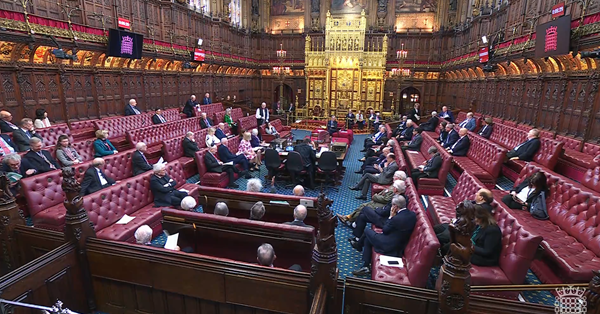THE 75th anniversary of the European Commission on Human Rights was a moment to acknowledge that its original “concerns remain vitally relevant to this day and that they are crucial to our future”, Lord Alton (cross-bench) said in a House of Lords debate last month.
Besides creating “a common legal space for over 700 million citizens”, “Its 14 articles protect basic rights, from the right to life to the rights to privacy, conscience, and religion, freedom of expression, a fair trial, family life, and more,” he said. In the UK, it is embodied in the Human Rights Act 1998.
The Bishop of St Albans, Dr Alan Smith, wanted “to make a few theological points. . . Let us go back to the Ten Commandments, where we find the creation narratives where humankind is created in God’s image. It is about the inherent dignity that belongs to each and every person, not dependent on sex, wealth, education, or any other differentiation,” he said.
“Nowhere in the scriptures do we find the phrase human rights — and certainly no reference to the ECHR. . . All laws and all conventions are ultimately human constructs. There are some who dislike the ECHR and have problems with the wider issue of human rights . . . [and] who are not happy with the way that the court has interpreted the underlying legal principles which are enshrined in the convention. But the huge benefits that it has brought to so many people, particularly people who have traditionally been marginalised and not given the ability to participate and to engage, surely outweigh the frustrations that people sometimes feel. I, for one, am thankful that we have the ECHR.”
Lord Rook (Labour) said that, “born amid the growing realisation of the full and horrific extent of the Holocaust, the issue of freedom of religion is core to the convention. . . Sadly, the fight for religious freedom is far from won. More than 80 per cent of the world’s population live in states where there are severe or significant restrictions on their freedoms, and that number is rising.
“The challenge to reduce persecution around the world is beyond the powers of any one country. At a time when intergovernmental institutions are all too often and all too easily undermined, the court and its convention offer a unique opportunity for nations and institutions to work together to fashion a world where people are truly free.”
Responding officially, Baroness Chapman (Labour) was optimistic about the future: “As we reset and deepen our relationships with friends across Europe and beyond to help us face the challenges and opportunities of our times . . . we welcome this chance to reflect on all we have achieved and to look forward to what needs to come next.”
Lord Alton, in conclusion, was equally positive. “This debate has been worthy of the anniversary, but also worthy of your Lordships’ House.” The motion to take note was agreed.

















